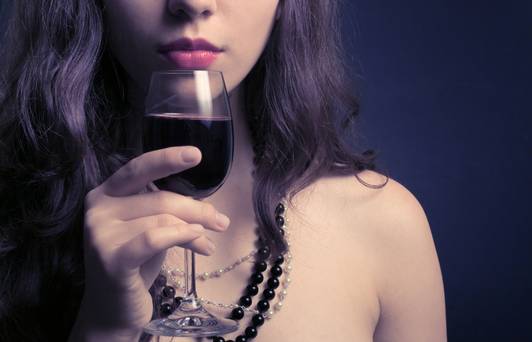
Dry January – that month-long festival of guilt, shame and repentance – is still the biggest abstinence initiative in this neck of the woods, but other months are beginning to gain ground.
No Alcohol November is becoming more popular, especially with those who want to launch a pre-emptive strike before the mindless abandon of the festive season. Sober October has become a charity-backed initiative in the UK – and a marketing move for the people behind the wildly successful Joe Rogan podcast.
Elsewhere, on the other side of the equator, Dry July and FebFast are all the rage. These initiatives, which have followers all over the world, are generally regarded as positive and enriching experiences, but there will always be those who get on board for all the wrong reasons.
Some people loudly and proudly abstain from alcohol for the month in order to buy themselves a free pass for the following month when they will balance the scales with gusto. It’s a little like foregoing the starter so you can have double-dessert. Forward-thinking? Yes. Strategic? Absolutely. Healthy? That’s debatable.
Others embark on a month of sobriety to prove to their family and friends that they don’t have a problem with alcohol.
And some treat abstinence months as endurance exercises. In the UK, Sober October followers are encouraged to raise funds for Macmillan Cancer Support. These ‘Sober Heroes’ – their words, not mine – drum up sponsors in much the same way people do before they run a marathon, attempt a bungee jump or take on the Four Peaks challenge.
It portrays alcohol abstinence as a gruelling hike only taken on by the strong and the brave. More than that, it turns temporary sobriety into a challenge. And challenges, don’t forget, conclude with celebration, which, in this case, conveniently dovetails with the month-long celebration that is the festive season.
At face value, abstinence months are a great idea. The trouble is that the message is being convoluted by gamified leader-board challenges and advertisers who have co-opted the campaigns to push their products (Rogan’s Sober October is sponsored by Whoop; Macmillan’s by Appletiser).
It trivialises an important issue, and takes us further and further away from the goal, which is to explore our social reliance on alcohol while tapping into a support network of community and camaraderie.
I gave up alcohol seven years ago when I realised I was incapable of being in a social situation without a glass of wine in my hand. It had become a social crutch and that made me uncomfortable. The fact that alcohol played a lead role in every one of my life’s dramas didn’t help matters. Truth be told, the sound of any liquid being poured into a wine glass still fills me with a remarkable sense of ease. I haven’t touched a drop since my 20s, but the Pavlovian association between wine and relaxation is still hardwired into the deepest recesses of my brain.
I was lucky in that two of my friends gave up alcohol around the same period. They started drinking again a few months later but, for a time, we were bonded together by a shared goal and what I now believe to be a crucial sense of belonging.
We hear a lot these days about ‘finding your tribe’, but in order to do that, you have to leave your tribe first. And like it or not, sobriety – even temporary sobriety – involves stepping away from social situations where alcohol is the common denominator… or leaving unspeakably early.
You’re no longer in the inner sanctum where 5am in vino veritas secrets are shared; Sunday morning war stories are traded and conspiratorial after-work nods are gestured from across the office. You’re establishing a new dynamic and this can sometimes feel a little isolating for those who haven’t found their sober tribe.
There is no doubt that Sober October and Dry January are challenging, but we should be careful not to treat them as mere challenges that end with a celebratory pint after 31 days.
It’s not about counting down the days until you can drink again, but about exploring a life without alcohol – and finding the people who you can do that with.
Irish Independent
